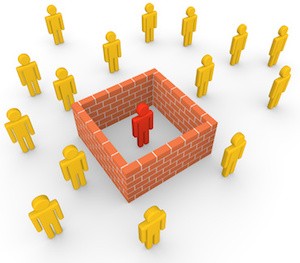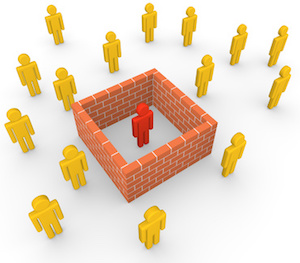 A healthy mind and a healthy body go together hand in hand. Very rarely do we have one without the other. A vast body of evidence demonstrates the physical benefits of a healthy social life. On the flip side, those who are isolated socially tend to have poorer health and life expectancy.
A healthy mind and a healthy body go together hand in hand. Very rarely do we have one without the other. A vast body of evidence demonstrates the physical benefits of a healthy social life. On the flip side, those who are isolated socially tend to have poorer health and life expectancy.
A Review of Social Isolation by Nicholas R. Nicholson published in The Journal of Primary Prevention states that “social isolation has been demonstrated to lead to numerous detrimental health effects in older adults, including increased risk for all-cause mortality, dementia, increase risk for re-hospitalisation, and an increased number of falls.”
Social isolation among seniors is increasingly common, even in areas where the population is growing rapidly. If you are feeling isolated, or know people in your family or community who are at risk of becoming so, it is advisable to try and address the issue before it becomes a problem. Sole caregivers can also be at risk of isolation.
Promote social health and connectedness by:
Keeping people mobile
In New Zealand, those over 65 are eligible for free public transport. While smaller communities may not have the same transport systems, those in the cities should be taught and encouraged how to make the most of this service. A lack of transportation is a primary cause of a social isolation, so anything that helps seniors get around and make independent choices about travel promotes their social health.
For families and helpers in smaller communities, offering rides to older loved ones and helping them to learn to use public transportation will help them maintain social connections and a healthy sense of independence.
Keep a purpose
Everyone feels better when they have a purpose, and seniors are no exception. Actively pursue hobbies or groups to help keep a positive routine; besides providing a sense of purpose, many hobbies and interests are inherently social in nature. Anything that involves a group, for example, playing bridge, could be said to be socially healthy.
There is very little reason for a senior to be bereft of ideas for what to do, there are always planned events at the local community centre, church or even mall. Volunteering is also great way of maintaining and expressing a sense of purpose.
Keep a spiritual connection
For those who are regular churchgoers, this weekly social connection is beneficial both in terms of company and inner peace. One of the benefits of a church community is the entire group tends to watch out for one another and may observe a decline in an isolated senior that may have gone unnoticed otherwise.
Love something else
Taking care of someone or something other than yourself offers many benefits – it distracts one from a sense of loneliness or self pity, and increases the sense of personal satisfaction. Pet owners, for example, remain engaged socially, have less depression, suffer less loneliness, feel more secure, have more motivation for constructive use of time and require less medication that non-pet owners.
Tending a garden can satisfy a nurturing drive, offer opportunities for exercise, fresh air and learning, as well as providing a common interest with other gardeners.
Treat undiagnosed problems
Seniors with undiagnosed or untreated health problems may avoid social situations because of embarrassment. A hearing aid may be the only barrier between a senior and better social health. Vision tests are important too as sight problems limit opportunities for social interactions with others.
When it comes to mobility, accepting assistance in the form of walkers, walking sticks or wheelchairs (even if only for short bursts) often makes the difference between able to get out and about or not. Discuss options with your loved ones or neighbours sensitively, and always offer to attend appointments with health professionals as moral and practical support.
Use the village
Socially isolated seniors may be vulnerable to a variety of unexpected problems or may have underlying issues such as dementia. Consider talking to trusted people in their community and organise a visiting roster, or simply ask them to keep a friendly eye out in case anything seems amiss.
Social nourishment
The act of eating with others is inherently social. Food is almost always designed to be shared; socially, mealtimes are events when the whole family or settlement or village comes together. Encourage older friends and relatives to share a meal with others whenever possible, whether it’s with a church group, the local senior centre, or at a friendly café. Dining with others is more likely to help promote better nutrition, which is crucial for the elderly.
Reach out
There’s nothing like a hug. Friendly platonic touching from friends and family, like hand holding or hugging, can lower stress and promote feelings of well-being. On the other hand, people deprived of touch can experience decreased well-being. So even if you or your older relatives are not the touchy-feely types, at the very least weave a friendly hug into your greetings and farewells.
Rally round after a loss
Older adults may be at highest risk for becoming socially isolated during the period after a spouse has passed away. When you’ve shared your life with a beloved spouse and companion for decades, it can be like losing the foundation of your existence when that person dies. For this reason, it’s important to provide extra emotional and social support to recent widows and widowers while they are grieving. Do more than bring flowers; go the extra mile and spend more time with them. This can make all the difference, and it helps to encourage a healthy grieving process rather than a spiral into prolonged depression and isolation.
Care for the Caregiver
Family caregivers who are helping to care for an elderly loved one probably don’t consider themselves seniors and are also probably more concerned about the social well-being of the person they are caring for than their own social well-being. But many caregivers are 50+ and caregiving itself can actually trigger social isolation. Caregivers often work by themselves, and more than half report they have less time for friends and family. All too often, they don’t call doctors when they are sick, and they have little or no time to exercise or eat well.
Some studies show that up to 70% of caregivers have clinically significant symptoms of depression. It’s not just the person being cared for who’s at risk of social isolation. And if you know a caregiver, or a loved one in your family shoulders the burden of caregiving for an elderly family member, take whatever steps you can to make that person’s life easier and to allow them to have a social life of their own.









Kevin Mullane - 6 years ago
Your article on keeping in contact about caregiver is very true as I’m one. Looking after my mum and my younger brother leave me little time for social life. It gets to the point is not worth hassle or getting harder to get away. I do get some help but only in their time. Sometimes you have to book ahead but there is a time limited. So only book if I got a appointments coming up. A computer is my only contract with peoples. Your Kevin